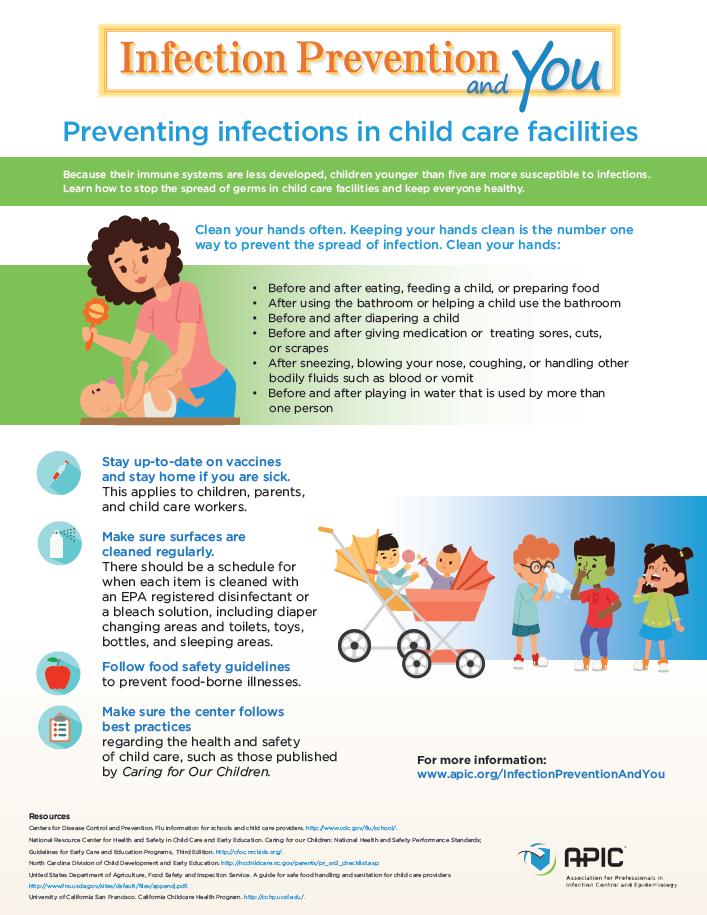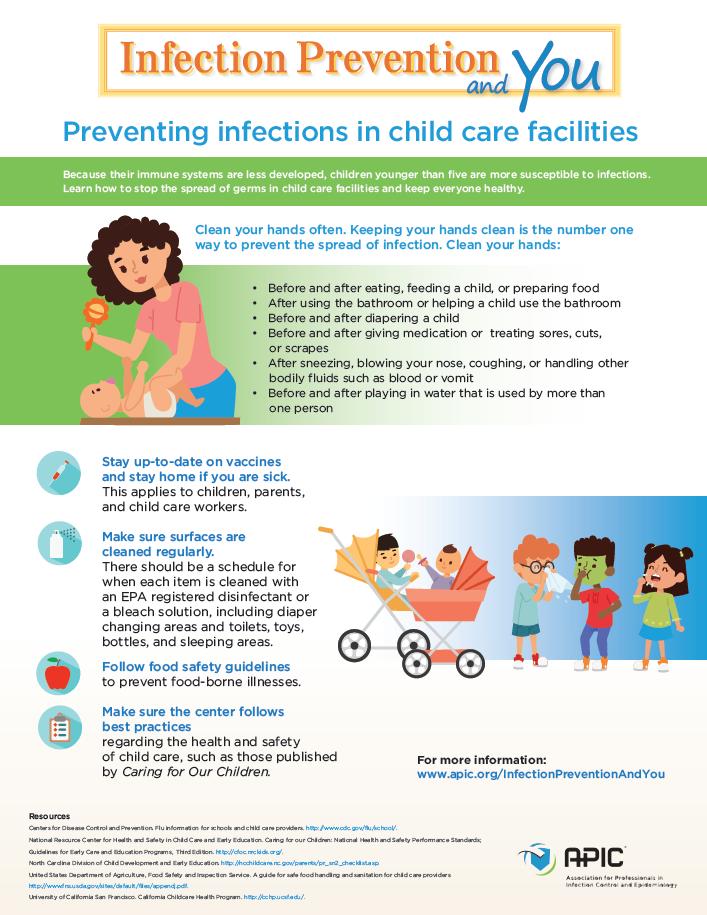
Credit: Association for Professionals in Infection Control and Epidemiology
Arlington, VA, November 29, 2016 – Child care personnel properly clean their hands less than a quarter of the times they are supposed to, according to a study published in the December issue of the American Journal of Infection Control, the official journal of the Association for Professionals in Infection Control and Epidemiology (APIC, http://www.apic.org).
A new study from the University of Arkansas used video cameras to record handwashing habits and compliance among child care workers at an early childhood center in northwest Arkansas. The researchers found that personnel and parents at the facility on average followed proper handwashing procedures only 22 percent of the time before and/or after tasks such as wiping noses, emptying garbage cans, preparing food, changing diapers, or using their cell phones. Caregivers washed 30 percent of the time it was called for, with paraprofessional aides at 11 percent, and parents at 4 percent.
"Handwashing is an important component of reducing illness transmission among children in early childhood centers, especially for the adults in charge of their care," said lead study author Jennifer Henk, PhD. "As we seek to improve overall quality in early childhood settings, our study shows the need to adopt creative strategies to increase handwashing compliance and efficacy."
Surveillance cameras were used to randomly record 25 hours of handwashing compliance in ten different classrooms. The center was aware of the cameras, but not alerted to the primary purpose of the study. There were a total of 349 handwashing opportunities in the 25 hours; 78 corresponding handwashing events took place for an overall compliance rate of 22 percent. Handwashing opportunities and events were based on guidelines for early child care established by the American Academy of Pediatrics. The guidelines outline sequential handwashing steps that need to be followed, including use of warm water, soap, paper towels, and continuing for 20 seconds. This study confirms the results of previous studies in this area that there is a need for funding of education and training about proper hand hygiene.
"Hand hygiene in early childhood centers is especially important because children under five years of age have only partially developed immune systems, increasing their susceptibility to communicable diseases," said Susan Dolan, RN, MS, CIC, FAPIC, president of APIC. "Studies have shown that children who spend time in an early childhood care center are two to three times more likely to acquire infections than children cared for in the home, with respiratory and gastrointestinal infections posing the highest risks."
Handwashing can prevent about 30 percent of diarrhea-related sicknesses and about 20 percent of respiratory infection in children, according to the Centers for Disease Control and Prevention.
###
Visit http://www.apic.org/infectionpreventionchildcare to access APIC's new infographic and more information about preventing infections in child care facilities.
Media Contact
Carly O'Brien
[email protected]
202-683-3163
@elseviernews
https://www.elsevier.com/





